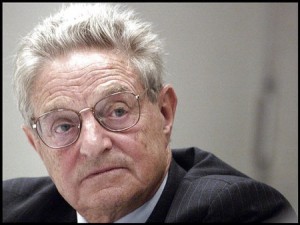Bloomberg | 2 February 2010
By Lucia Kassai
Feb. 2 (Bloomberg) -- Billionaire George Soros’s Adecoagro venture, which invests in agriculture and renewable energy in Latin America, is considering an initial public offering to help fund projects in Brazil that include a $700 million sugar mill.
“We never had difficulties in raising capital from shareholders, but if market conditions are attractive, we could go for an IPO, why not?” Marcelo Vieira, a director for sugar and ethanol at the Buenos Aires-based company, said yesterday in an interview. “The sugar and ethanol sector in Brazil is thriving so we decided to focus our new investments here.”
Adecoagro, founded in 2002 by investors including Soros to buy Argentine farmland after the peso crashed, plans to more than double sugar-cane crushing in Brazil to 11 million metric tons by 2016, from 4.8 million now, and also build a 6 million- ton cane processor in Mato Grosso do Sul state this year. It also may buy a Brazilian sugar mill, Vieira said in Sao Paulo.
Adecoagro owns or leases about 340,000 hectares (840,000 acres) of farmland in Argentina, Brazil and Uruguay, where it grows coffee, soybeans and other commodities. Adecoagro is the largest rice grower in Argentina and makes dairy products there.
Companies including Royal Dutch Shell Plc and Bunge Ltd. also are expanding into ethanol in Brazil. Shell said yesterday it may form a joint venture with Cosan SA Industria & Comercio in a deal that may give it shared control of the world’s largest sugar-cane producer.
Climate Change
To fund its expansion, Adecoagro is considering an initial public offering in Brazil, Argentina or “whatever is more interesting,” Vieira said. The company may also ask shareholders to inject more money into the company. Soros is the biggest single shareholder with about 30 percent, according to Vieira.
Soros, 79, has amassed a fortune estimated at $11 billion, according to Forbes magazine. The founder of the $25 billion hedge-fund firm Soros Fund Management LLC said on Jan. 15 he would invest $1 billion in clean-energy technology and donate $100 million to an environmental policy group to aid new regulations aimed at curbing carbon emissions.
Adecoagro operates two mills, one in Minas Gerais and the other in Mato Grosso do Sul state. It also produces energy from cane waste, known as bagasse.
The company sold 22,000 head of cattle and leased land to Santo Andre, Brazil-based Marfrig Alimentos SA for $6.4 million on Jan. 27. The cash, Vieira said, will be set aside for sugar and ethanol investments in Brazil.
Expanding Hectares
Sugar-cane planting will be expanded to 120,000 hectares by 2016, from 50,000 hectares now. Most of that growth will be on leased land, Vieira said.
“Land in Brazil is now very expensive due to the valuation of the local currency and record commodity prices,” he said. “We prefer to close long-term land leasing agreements.”
Sugar prices have more than doubled in the past year because of a global deficit after above-average rains in Brazil and a drought in India pared yields. German research company F.O. Licht revised its deficit forecast today to 8 million tons in the season that began in October, from 6 million tons forecast on Nov. 17.
Raw sugar for March delivery fell 0.7 percent to 29.06 cents a pound at 12:12 p.m. on ICE Futures U.S. in New York. Yesterday, intraday prices rose to 30.4 cents, the highest since Jan. 15, 1981, to close at 29.98 cents, down 2.1 percent.
Prices Should Ease
Prices should ease after Brazil starts harvesting in March, Vieira said. He said prices are set to remain above 20 cents a pound during 2010.
“It is still going to be a good year for sugar-cane producers and mills,” he said.
In December, Soros said rich nations should use $100 billion of foreign-exchange reserves from the International Monetary Fund to finance efforts in developing nations to combat climate change.
Born in Budapest, he fled as a teenager to avoid Nazi deportation, worked in England as a railroad porter and as a restaurant waiter before obtaining an entry-level position in an investment bank. In 1963 he emigrated to the U.S. and eventually made his fortune through his Quantum Fund, according to the Web site of the Open Society Institute, a Soros organization aimed at combating corruption and rights abuses.
The investor gained fame in the 1990s when he reportedly made $1 billion correctly betting against the British pound. He also wagered that Germany’s mark would appreciate after the collapse of the Berlin Wall in 1989 and that Japanese stocks would start to fall in the same year.
To contact the reporter on this story: Lucia Kassai in Sao Paulo at [email protected].














